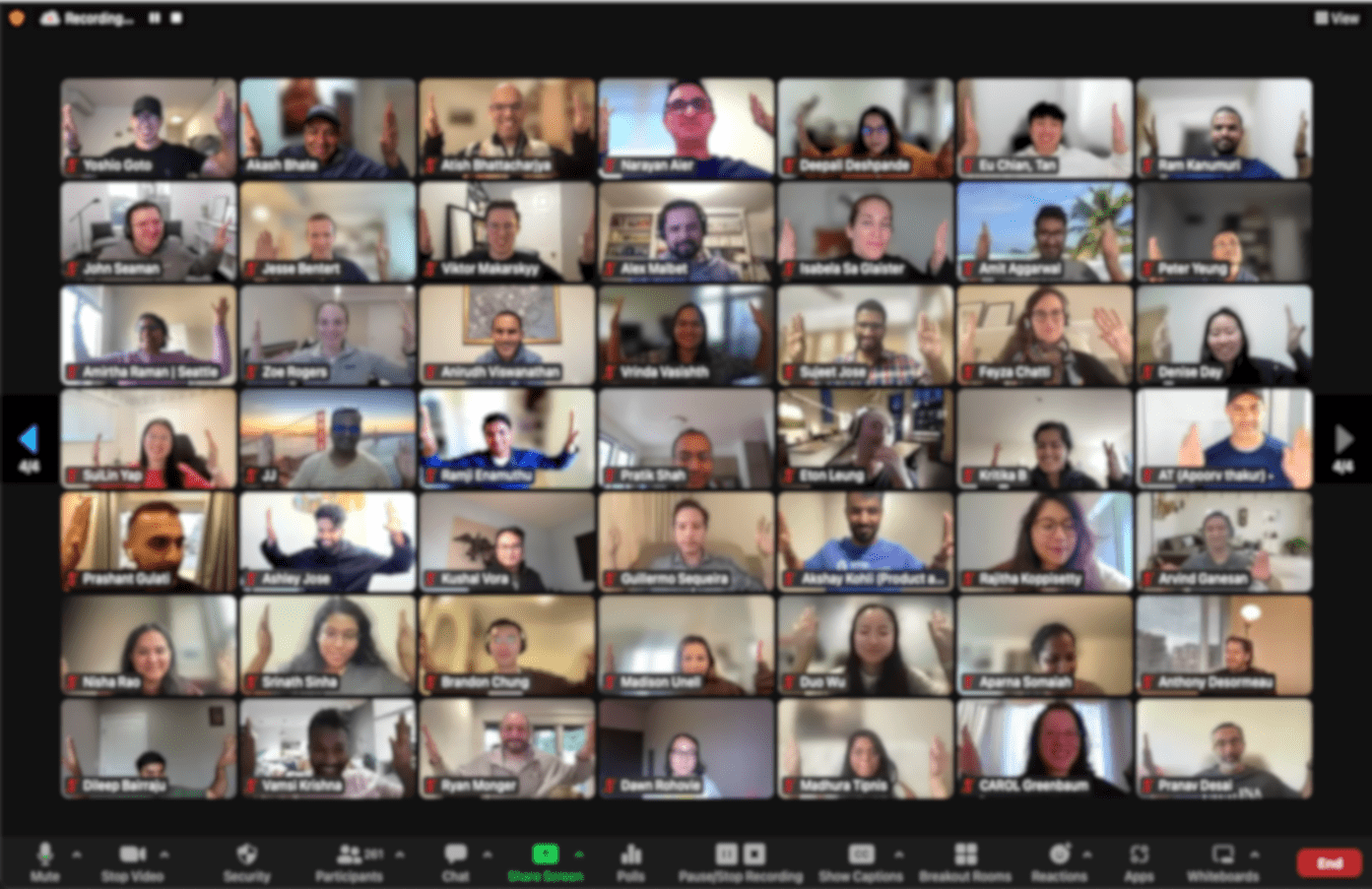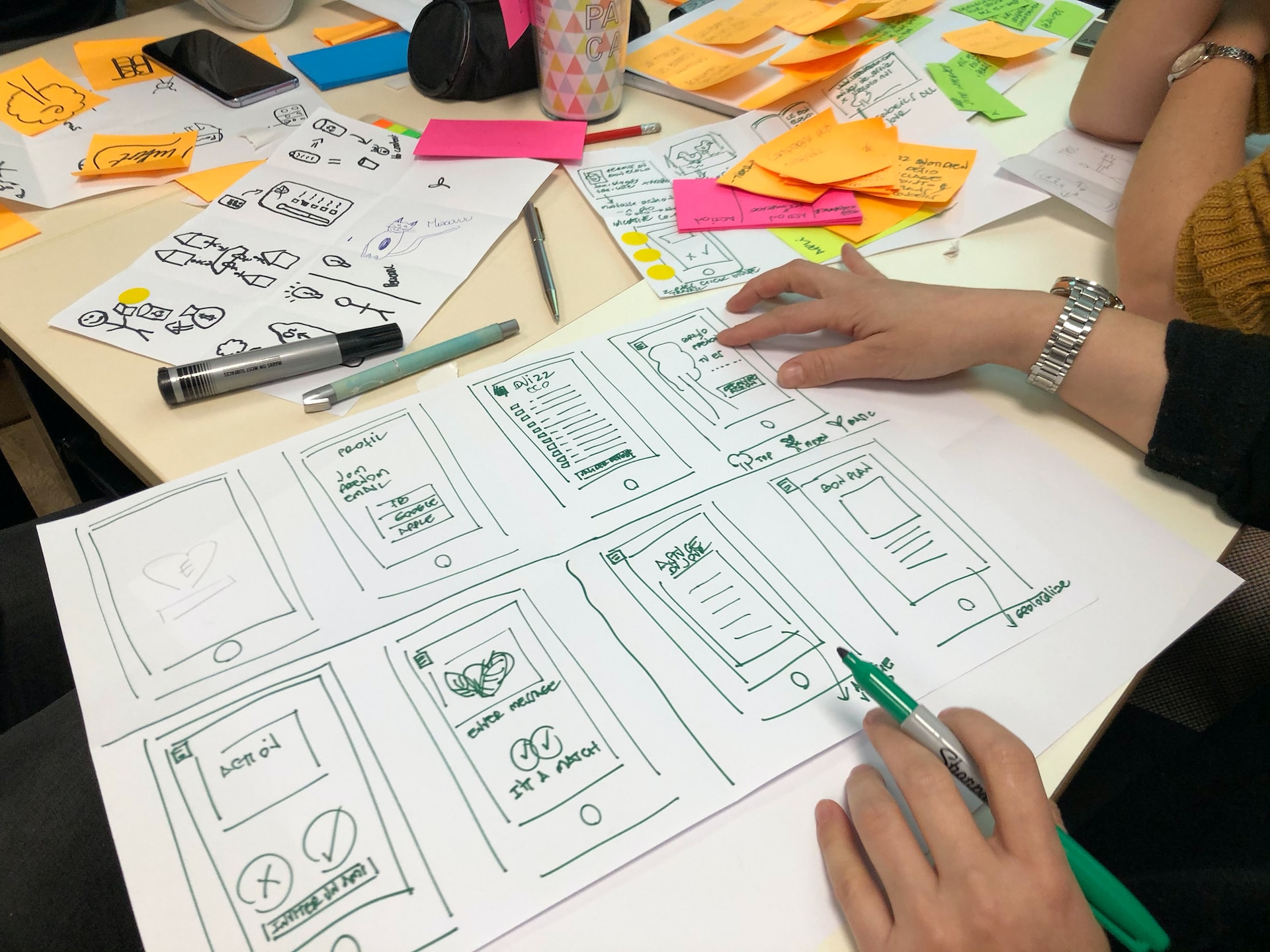The world is embarking on a new technological revolution and the Python programming language is right at the heart of it.
Online Python classes are here to help, offering exclusive advice from leading specialists and a direct path to rapid skill acquisition and career advancement.
Read on and discover the best Python course for you.
The Best Python Courses to Master the Programming Language
Python is somewhat of an
all-purpose programming language and has long been popular, for that reason alone. It’s used for a variety of data manipulation, analysis, and business purposes. But it’s also used to program artificial intelligence, machine learning, and deep learning.
This is why Python skills are such a hot commodity. Python-proficient professionals are in-demand, commanding high salaries, and are positioned to excel in all kinds of tech-driven roles, fields, and industries.
Want that competitive edge?
Then find the best Python course for your current technical level and professional goals. Expert-led online Python classes are the fastest way to acquire, improve, and master career-applicable skills.
You can find five of those right here at Maven – the best website to learn Python.
5 Python Courses You Must Consider
1. Hands-on 3 Data Projects in 5 Weeks
⭐9.8 (4 ratings)
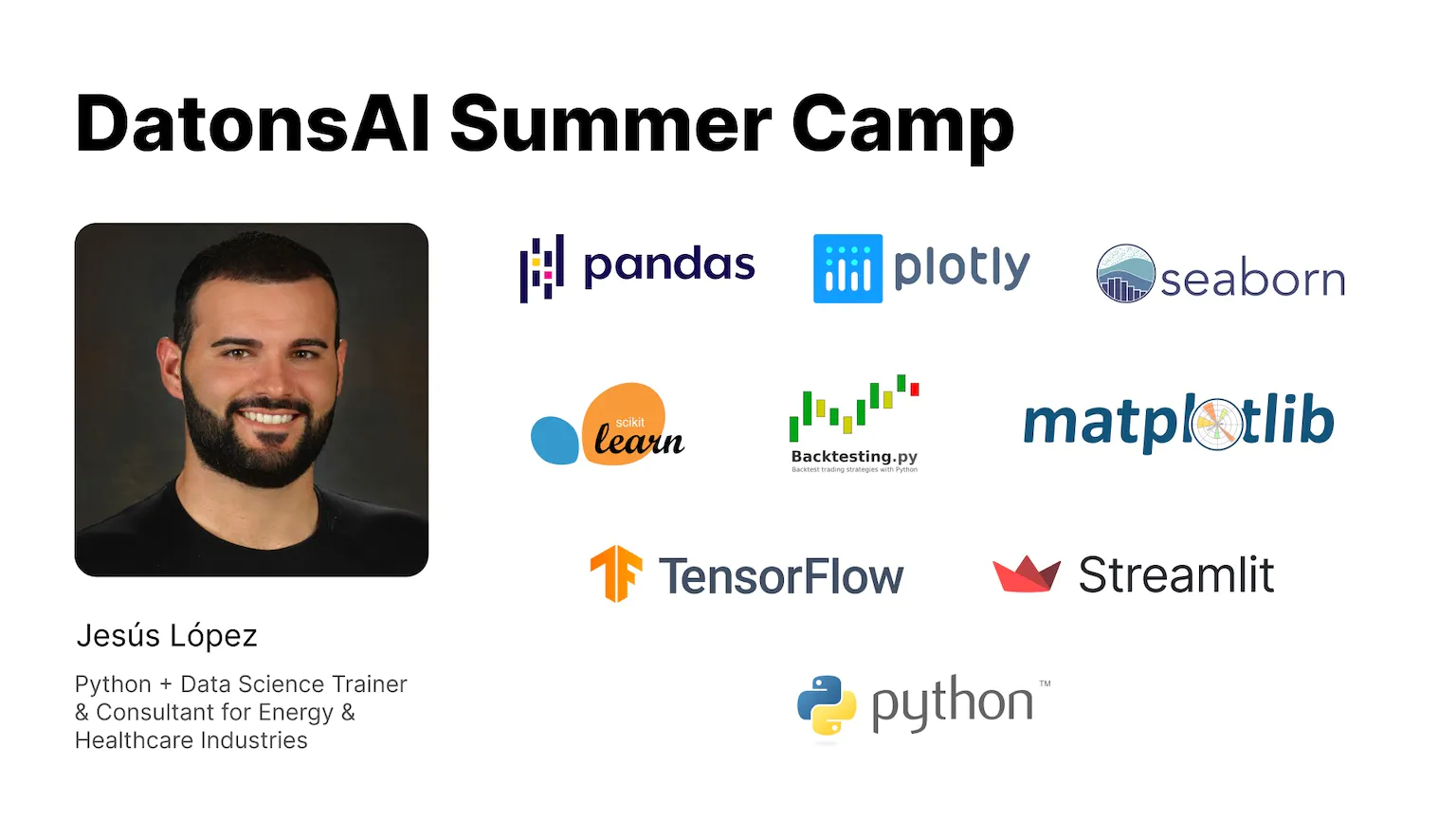
Hands-on 3 Data Projects in 5 Weeks is a 5-week, cohort-based course teaching in-demand data, programming, and Python skills. This is the best Python course for learners who want to gain practical experience and build a professional portfolio.
The program is led by experienced data science trainer, Jesús López, who uses clear explanations and progressively challenging exercises to equip learners with essential and competitive Python skills.
López guides learners through mental model coding, complex data analysis, data visualization, overfitting resolution, website data extraction, API use, Streamlit app building, algorithmic trading, deep learning, and more.
If you want to dive into actual coding and real-life data projects, this is absolutely the best Python course for you. Throughout the course, students complete three data projects using the datasets of their choice. And they practice data science decision-making, adopt Python best practices, and
leverage AI while doing so.
Their learning method based on stimulating the student's curiosity is truly innovative. In addition, we have been able to develop multiple ML models to predict outcomes in urological cancer involving data from a large center, the Ramón y Cajal Hospital. Thank you, Jesus. - José Subiela
2. Jump Into Data Science in Python
⭐9.3 (3 ratings)

Looking for the best intro to Python course? Start with Jump Into Data Science in Python! These are beginner-level online Python classes that are perfect for newbies and aspiring data scientists. No coding experience is necessary. Students just need to be familiar with datasets and have a good grasp of high school math.
The course begins with an introduction to Python and Pandas. It then moves into data tidying, data QA, and visualization.
Python is the primary programming language for transitioning students from spreadsheet tools like Excel to proficient coding. This three-week intensive equips students with the necessary skills to handle datasets and perform data science tasks using Python.
It’s a flexible course with self-paced video lessons and twice-weekly evening sessions for hands-on practice.
By the way, course instructors Dr. Elena Grewal and Sarah McGowan are Yale Faculty and based this program on their top-rated class at Yale’s School of Environment.
“Learn data science the right way from the basics. This is the best intro to Python course you can have.”
3. Fundamentals of Data Analysis Using Pandas
⭐9.3 (3 ratings)
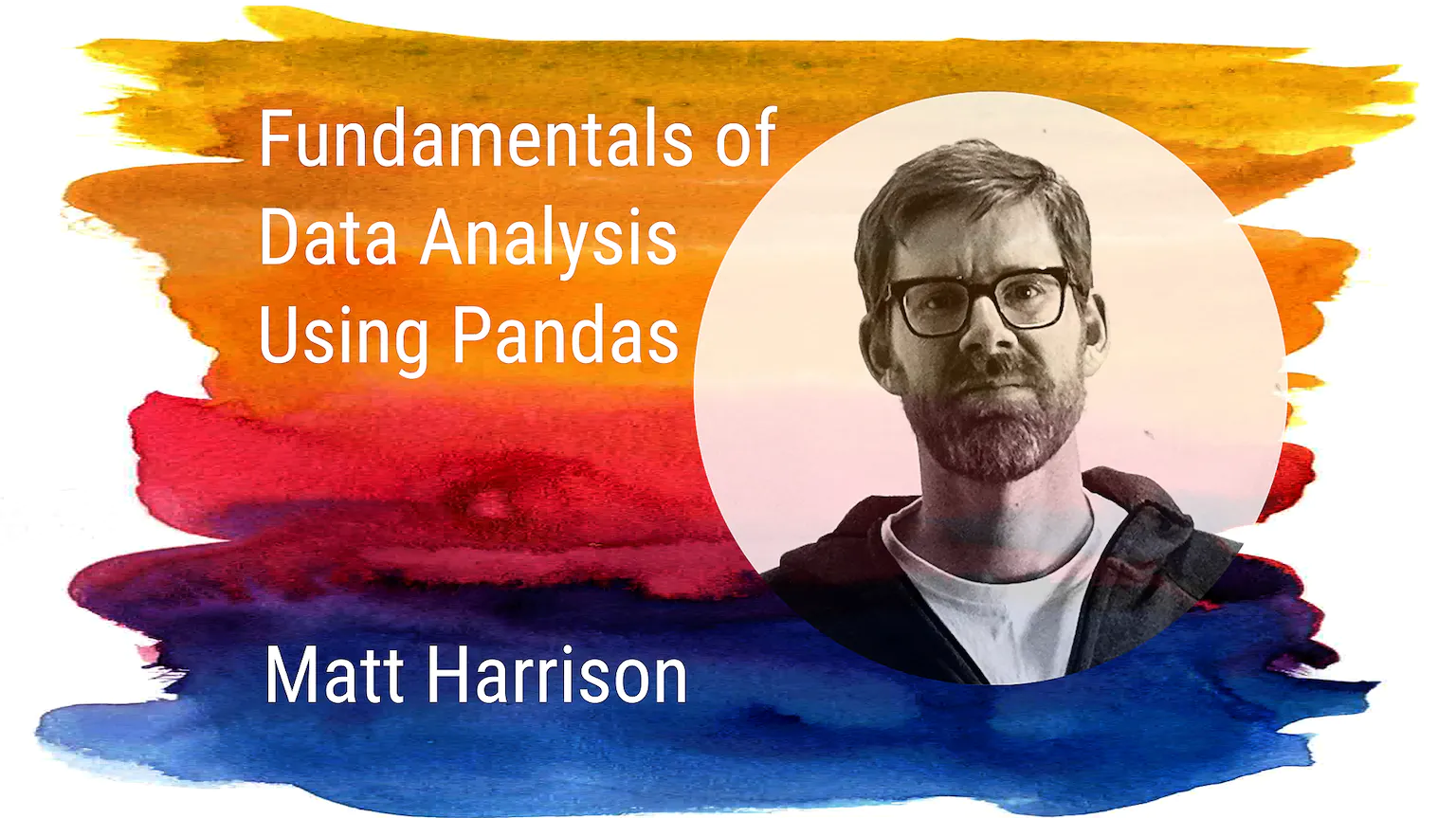
Fundamentals of Data Analysis Using Pandas is a 4-day, cohort-based course led by trainer Matt Harrison, that’s concentrated on learning Pandas patterns for more efficient and effective code writing, collaboration, and machine learning data preparation.
Python is central to providing participants with essential data analysis skills. Python's Pandas library enables students to perform various data-related tasks, including loading and preparing data, cleaning numeric, categorical, and date data, and conducting exploratory data analysis (EDA) and visualizations.
This self-paced Python course is short and focused on mastering critical Pandas skills, techniques, and practices. Matt Harrison teaches processes, frameworks, and organization methods for working with raw data, creating visualizations, and writing shareable code.
“Pandas is one of those libraries that suffers from the “guitar principle”: it is easy to use, but difficult to master. Matt Harrison is ready to drop some knowledge on you and have you riffing your own data manipulation solos like you're Slash in “November Rain”, or Prince in “Purple Rain”.”
4. Python Programming For Beginners
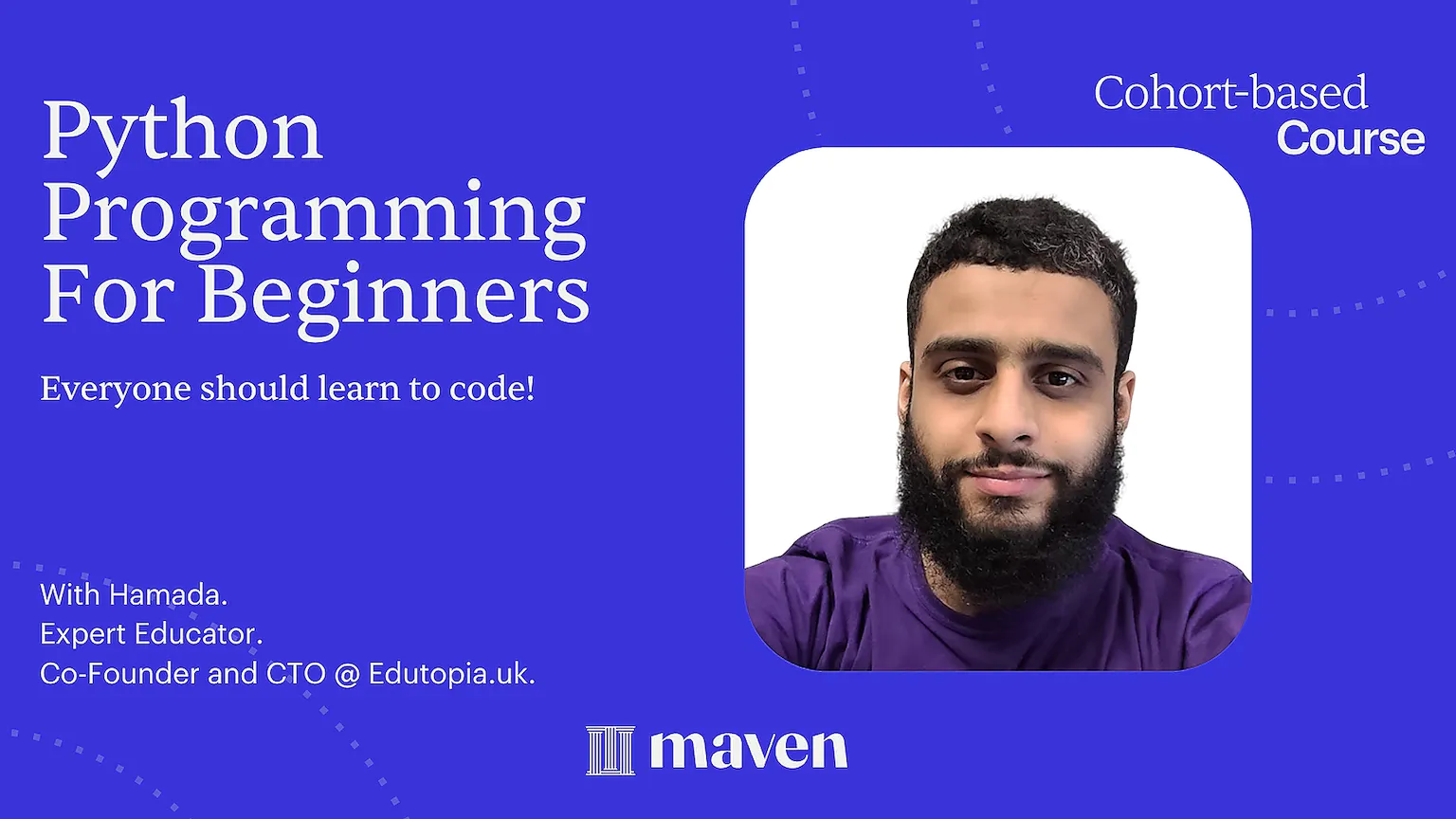
The role of Python in this course is to serve as the fundamental programming language for learners to understand the basics of programming effectively.
Participants gain a comprehensive understanding of coding principles and receive immediate answers to their questions, enhancing their learning experience.
“Python has been a core part of the work I do as an apprentice and with Hamada's help, I am able to work much more independently than I would have had I learnt to code by myself. Hamada can inspire students to explore their gifts, and I am confident that he will continue his positive influence on many students to come.” - Abud Bana
5. Modern APIs with FastAPI MongoDB and Python
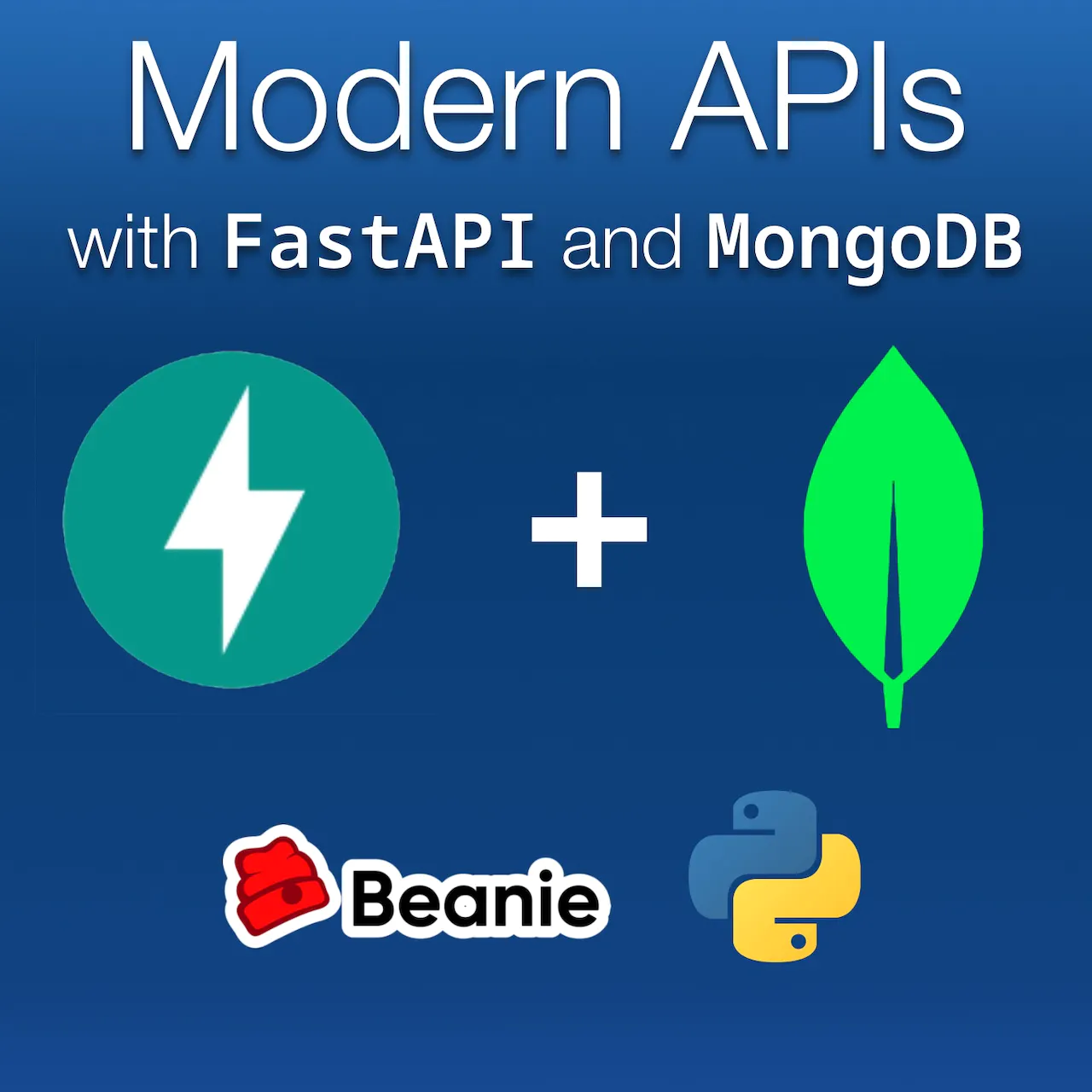
Modern APIs with FastAPI MongoDB and Python is a 2-week, cohort-based course hosted by Michael Kennedy, a Python Software Foundation Fellow and the founder of Talk Python Training. The course is designed to make you an expert in building modern web apps using FastAPI, MongoDB, Pydantic, and async programming with Python.
The curriculum is meticulously structured, beginning with an introduction to FastAPI, the fastest-growing Python web and API framework. You'll delve into Python typing, Pydantic models, and asynchronous programming using Python's async and await keywords. The course also covers document databases like MongoDB and the Beanie ODM, providing a solid foundation for modeling and querying data.
With an emphasis on practical application, you'll build a realistic API with FastAPI and learn about accepting inbound data and performance testing. The course concludes with a review and final Q&A session to tie everything together.
I just finished the course last night and tonight and WOW, it's going to be worth sooo much more to be than the price I paid for it. I've been a TP2M listener for a couple years and love your stuff Michael. Be encouraged: you're changing people's lives. Seriously. - Rick (verified student)
How to Know Which Python Course to Take First
High-quality learning and development courses are essential for developing, sharpening, and mastering Python skills. But there are many programs to choose from, even when you’ve narrowed things down to the best website to learn Python.
Find one that aligns with your learning level, goals, and constraints.
How much do you know about Python, programming, or mathematics? What are your goals? Are you a beginner who wants to know enough to collaborate with Python programmers or are you considering a career switch? Can you devote a few days to studying or would you rather space things out over a few weeks?
Those are some things to consider before enrolling in online Python classes. You should assess:
The course objectives and intended career benefits
Course prerequisites
Course length and schedule
Cost, financing options, and ability to expense the fees
Who the course is recommended for
Aside from those considerations, your interests and professional goals are what matter most. So, prioritize the course that’s best tailored to your needs.
Elevate Your Python Knowledge
Professionals have to
remain data and tech-literate. And for many people, technological literacy now means having some level of Python familiarity, knowledge, or skills.
If your career performance, growth, and success are tied to Python, rest assured that you can develop and deepen your skills through high-quality digital programs.
But quality is key and not all online Python classes are made equal. Don’t sign up for generic MOOCs or influencer-pushed courses when figuring out where to learn Python.
Opt for professional-level programs that are created, led, and supported by reputable experts and industry leaders.
Maven is the best website to learn Python, elevate your skills, and achieve professional learning and development goals. Maven offers a wide variety of courses, tailored to different learning needs and career objectives.
The best Python course for you is available here. Sign up with Maven and enroll today.
FAQ
1. What is a high-salary job in Python?
Here are some Python job salary stats, courtesy of
ZipRecruiter:
Python Architect: $160,000-$193,500 per year
Python Backend Developer: $130,500-$168,000 per year
Senior Python Developer: $126,000-$162,500 per year
Full Stack Python Developer: $119,500-$159,000 per year
Python Consultant: $73,500-$150,000 per year
Perl Python Developer: $91,500-$140,500 per year
Python Django Developer: $106,500-$139,000 per year
Python Developer: $90,000-$139,500 per year
2. Which Python course is best for jobs?
3. How long does it take to master Python?
It takes two to six months to learn the fundamentals of Python and become a solid junior developer.







